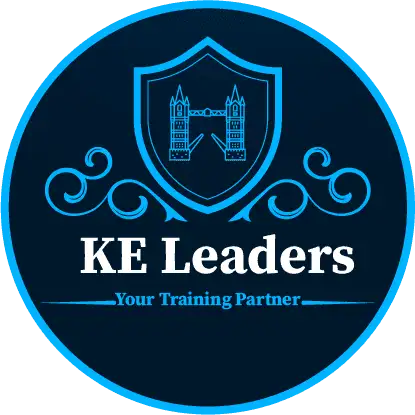Procurement and the Global Business Landscape
In an increasingly interconnected world, procurement has evolved from a mere transactional function to a crucial strategic driver within businesses. The global business landscape, characterised by complex supply chains, geopolitical dynamics, and rapid technological advancements, demands a nuanced understanding of procurement practices. Today, organisations are leveraging global procurement strategies to optimise supply chains, enhance resilience, and drive competitive advantage. Exemplifying this shift are companies like Mars and TradeDepot, which have successfully navigated the complexities of global sourcing through innovative procurement methods and technological integration.
Importance of Global Procurement
Global procurement plays a crucial role in optimizing supply chains, reducing costs, mitigating risks, and expanding market presence. Key benefits include:
- Access to otherwise unavailable resources and expertise
- Achieving cost savings by sourcing from regions with competitive pricing
- Expanding market reach
- Improving product quality
- Enhancing supply chain resilience
Five Stages of Global Procurement
- Preliminary Research: Companies conduct extensive market analysis and supplier research to gather crucial information for informed decision-making.
- Supplier and Market Evaluation: Companies assess potential suppliers and market conditions to ensure alignment with procurement objectives.
- Selection of the Supplier: The procurement team selects the most suitable supplier based on company-specific requirements and criteria.
- Implementation: The focus shifts to executing the agreed supplier contract, establishing supply chain processes, and integrating suppliers into the company’s operations.
- Performance Monitoring: Companies continuously monitor supplier performance by tracking KPIs such as delivery times, product quality, and compliance levels.
Four Pillars of Global Procurement
- People: Success relies on expertise, skills, and collaboration among procurement team members, suppliers, and stakeholders.
- Process: A well-defined and streamlined procurement process ensures consistency, efficiency, and compliance.
- Technology: Procurement automation solutions, supplier relationship management software, and analytics tools enhance transparency, visibility, and control over procurement activities.
- Supply Chain: An efficient and resilient supply chain is critical for successful global procurement operations, involving robust logistics networks, inventory management systems, and risk mitigation strategies.
Live Examples
- Mars, Incorporated: As one of the leading global food manufacturers, Mars has integrated artificial intelligence and machine learning into its procurement processes. By automating routine tasks and data workflows, Mars has improved operational efficiency and allowed procurement teams to focus on strategic decision-making rather than administrative functions. For example, AI enables Mars to analyse vast datasets, enhancing supplier selection and risk management while uncovering new opportunities for cost savings.
- TradeDepot: This Nigerian tech-driven supply chain company leverages AI to simplify regulatory compliance, facilitating faster market entry for brand partners. By carefully managing local regulations and market conditions, TradeDepot helps brands navigate the complexities of the regulatory landscape, thereby reducing barriers and expediting the delivery of products.
Case Study: Coca-Cola’s Global Procurement Strategy
Coca-Cola serves as an exemplary model of effective global procurement. The company’s supply chain operates across multiple countries, sourcing ingredients and materials from diverse suppliers worldwide. By adopting a strategic sourcing framework, Coca-Cola optimises procurement costs while ensuring high-quality products.
Challenges Faced
- Geopolitical Tensions: Trade restrictions and tariffs posed risks to ingredient sourcing, especially in politically unstable regions.
- Sustainability Concerns: Growing pressure for sustainable practices required Coca-Cola to find eco-friendly suppliers.
Solutions Implemented
- Strategic Supplier Partnerships: Coca-Cola fostered long-term relationships with suppliers, which included mutual commitments to sustainability goals.
- Real-time Data Analytics: Implementing advanced analytics platforms allowed real-time monitoring of supply chain efficiencies and potential risks, aiding rapid decision-making.
Impact
Successfully navigating these challenges has allowed Coca-Cola to maintain its market leadership while enhancing operational efficiency.
Pros and Cons of Global Procurement
Pros:
- Cost Efficiency: Companies can lower production costs by sourcing from regions with lower expenses.
- Increased Quality: Access to specialised suppliers enables firms to enhance product quality.
- Risk Diversification: Sourcing from multiple geographies reduces reliance on a single supplier, enhancing supply chain resilience.
Cons:
- Complexity: Managing relationships across diverse suppliers and countries can be challenging.
- Risks of Geopolitical Disruptions: Political instability or changes in trade policies can disrupt supply chains.
- Regulatory Challenges: Compliance with varying local regulations adds another layer of complexity.
Future Trends in Global Procurement
The future of procurement is characterised by several key trends:
- Sustainability and Ethical Sourcing: Suppliers that adhere to environmental and ethical standards will become increasingly vital.
- Technological Integration: The use of AI and blockchain will enhance transparency, efficiency, and collaboration.
- Supplier Relationship Management (SRM): Fostering strategic partnerships with suppliers will be crucial for driving mutual growth and innovation.
Solutions for Future Challenges
To adapt to an evolving landscape, organisations should embrace several strategies:
- Emphasise Technology: Implement procurement automation tools to streamline processes and improve decision-making.
- Focus on Resilience: Develop risk management strategies that prepare organisations for potential disruptions.
- Invest in Talent Development: Cultivate a workforce adept in procurement processes and technology, emphasising communication and relationship management skills.
Enquiry at : admin@keleaders.com
Whatsapp: 0044 790 125 9494
visit : www.keleaders.com


